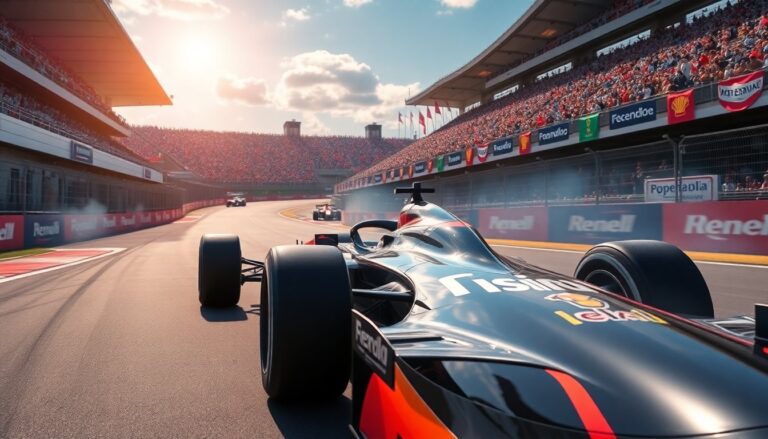Argomenti trattati
The Allure of Formula 1: A Global Phenomenon
Formula 1 (F1) transcends the realm of motorsport; it stands as a high-octane spectacle that captivates millions worldwide. Each season unfolds like a gripping narrative, characterized by intense competition, advanced technology, and strategic ingenuity. Fans flock to racetracks, and television screens illuminate homes as teams and drivers vie for dominance in a relentless race against time and their adversaries.
A Rich Legacy
The history of Formula 1 traces back to the early 20th century, undergoing significant transformations over the decades. From the raw, unregulated events of the past to today’s meticulously engineered vehicles, F1 represents the zenith of automotive innovation. Each race weekend serves as a showcase of speed, skill, and strategy, where teams employ diverse tactics to outmaneuver their rivals.
Understanding the Dynamics of F1 Racing
At the core of Formula 1 lies a delicate balance between speed and strategy. Drivers are not only racing against the clock; they are also engaged in a mental chess match with their opponents. Every decision, from tire selection to pit stop timing, can significantly influence the outcome of a race. The introduction of hybrid power units has added an additional layer of complexity, as teams must now manage energy recovery systems while maximizing overall performance.
The Role of Technology in Formula 1
Formula 1 cars represent the pinnacle of engineering, showcasing the latest advancements in automotive technology. These vehicles are meticulously crafted for maximum aerodynamic efficiency, allowing them to navigate through the air with minimal drag. Innovations such as the Drag Reduction System (DRS) and the Kinetic Energy Recovery System (KERS) have transformed racing, equipping drivers with essential tools for strategic overtaking and position defense.
The advent of telemetry has fundamentally changed data analysis during races. Teams can monitor their cars in real-time, assessing performance metrics and making informed decisions as the action unfolds. This data-driven methodology enables precise adjustments to setups and strategies, often determining the outcome between victory and defeat.
Teamwork and Collaboration
The success of a Formula 1 team extends beyond the driver’s individual prowess; it fundamentally hinges on teamwork and collaboration across various roles. Engineers, strategists, and support staff each contribute essential skills that enhance the team’s overall performance. Notably, the pit crew plays a pivotal role; their efficiency during pit stops can dramatically influence race results, where every fraction of a second matters.
Strategic Decision-Making in Formula 1
Strategic decision-making in Formula 1 resembles navigating a complex puzzle. Teams continuously evaluate track conditions, tire degradation, and fuel levels to enhance their performance. For example, tire choice plays a pivotal role; teams must determine whether to opt for soft tires for speed or hard tires for durability, depending on the race dynamics. This decision-making process is frequently guided by data analytics and historical performance, illustrating the intricate blend of art and science in Formula 1.
Additionally, the psychological dimension is crucial. Drivers must maintain focus and composure under immense pressure, making split-second decisions that can significantly impact the race outcome. The mental resilience exhibited by F1 drivers underscores their dedication and rigorous training.
The Future of Formula 1
The future of Formula 1 is poised for significant transformation. The drive towards sustainability is gaining traction, with initiatives focused on reducing the sport’s carbon footprint. The introduction of biofuels and the commitment to achieving net zero carbon by 2030 are pivotal steps in this direction. These changes will not only influence car engineering but also reshape race operations.
Furthermore, technological advancements will continue to progress. The integration of artificial intelligence and machine learning into race strategies could offer teams unprecedented insights. The future of F1 promises to be as thrilling as its storied past, characterized by innovation and challenges that will keep fans engaged.

